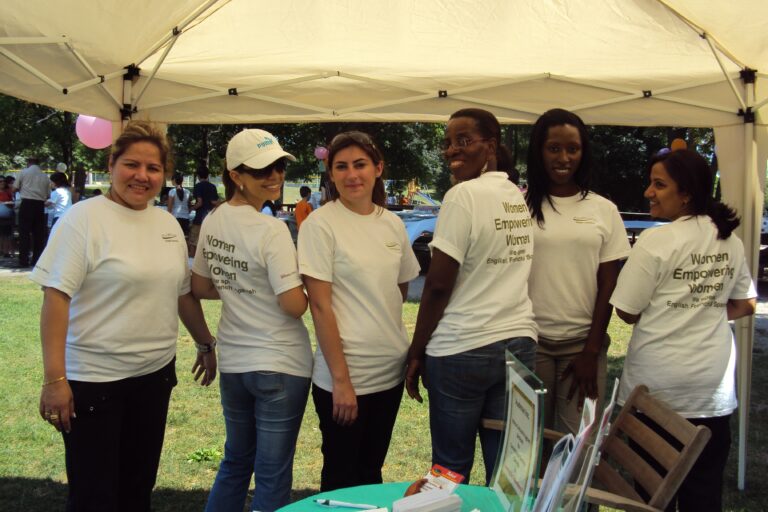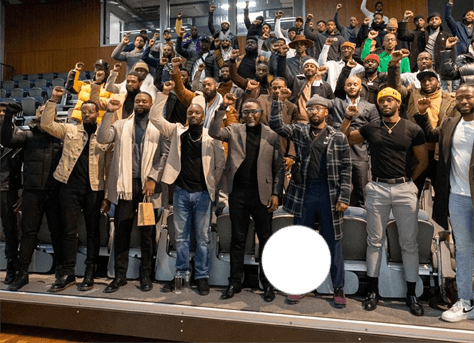EDI Sensitivities
Part III: Intersectionality, An Overview
Part III: Intersectional Opportunities in Marketing
They're already here!
Intersectional marketing strategies recognize and respect the complex identities within diverse communities. By leveraging culturally centric and partnership-driven approaches, brands can create more meaningful, authentic connections. This article explores these strategies with real-world examples and presents a major counterargument to consider.


What is Intersectionality?
Intersectionality acknowledges that individuals hold various social identities (such as race, gender, and socioeconomic status) that intersect and influence their experiences. For instance, a Black woman’s experience is shaped by both her race and gender, making it unique from that of a white man or a Black man. Recognizing these intersecting identities allows marketers to create more relevant and resonant campaigns.
Example 1: Culturally Centric OOH Marketing
Out-of-Home (OOH) marketing can greatly benefit from an intersectional approach. Consider a Black arts and cultural center collaborating with an OOH marketer. This partnership could involve:
- Renting wall space: The marketer can showcase the center’s artwork or host community events, aligning the brand with local culture.
- Electronic OOH boards: These could display culturally relevant content alongside brand messages, ensuring the advertisement feels authentic and relatable.
- Mural collaborations: A local artist could create a mural inspired by a brand, like Toyota, but infused with local cultural elements (e.g., a RAV4 with subwoofers and artistic representations of music).
This strategy not only provides financial support to the cultural center but also ensures the brand’s message resonates deeply with the community by reflecting their cultural identity.
Example 2: The Power of Collaboration
Strategic partnerships can significantly amplify marketing efforts. Take the collaboration between Maneuver, a Black men’s cosmetics company, and BlkMenStyle, a Black men’s empowerment organization:
- BlkMenStyle’s reach: With access to 20,000 influencers, BlkMenStyle put Maneuver products on the radar of a highly relevant audience.
- Events and promotions: Together with Holt Renfrew, these organizations could host promotional events that aligned with their shared mission and values, creating a powerful synergy.
This collaboration highlights the importance of leveraging existing networks and trust within a community. Maneuver benefited from BlkMenStyle’s established audience, while BlkMenStyle amplified its mission through a brand that catered specifically to Black men’s needs.

We've been the movers and shakers...
Black History Month being officially recognized in Canada? You can thank a BLACK WOMAN for that
Maxcine Z Telfer
Founder
Audmax Inc
Chair
Centre for Professional & Organizational Development

The Risks...
One major criticism of intersectional marketing is the risk of over-segmentation. Brands may struggle with balancing the need for targeted campaigns with the risk of fragmenting their audience too much, potentially leading to inefficiencies and increased costs.
Additionally, there is a risk of tokenism if brands do not genuinely invest in understanding and supporting the communities they target. Superficial efforts can backfire, leading to mistrust and negative backlash. Its a similar concept to as Procter & Gamble using its Tampax brand to support breast cancer initiatives rather than its Old Spice brand.

Conclusion
By understanding and respecting the intersecting identities within diverse communities, brands can create marketing strategies that are both impactful and authentic. However, it’s crucial to approach intersectional marketing with genuine commitment and avoid over-segmentation or tokenistic efforts. Sustainable success lies in building long-term, trust-based relationships with the communities they aim to serve.
References
- Government of Canada, Statistics Canada – “The Economic Well-Being of Women in Canada”. Statistics Canada
- McKinsey & Company – “Diversity Wins: How Inclusion Matters”. McKinsey
- Pew Research Center – “Breadwinner Moms”. Pew Research
- MarketWatch – “Intersectionality in Marketing”. MarketWatch

Get in Touch With Us!
- info@audmaxinc.com
- +1 (905) 615-1188
- @CPODCentre
